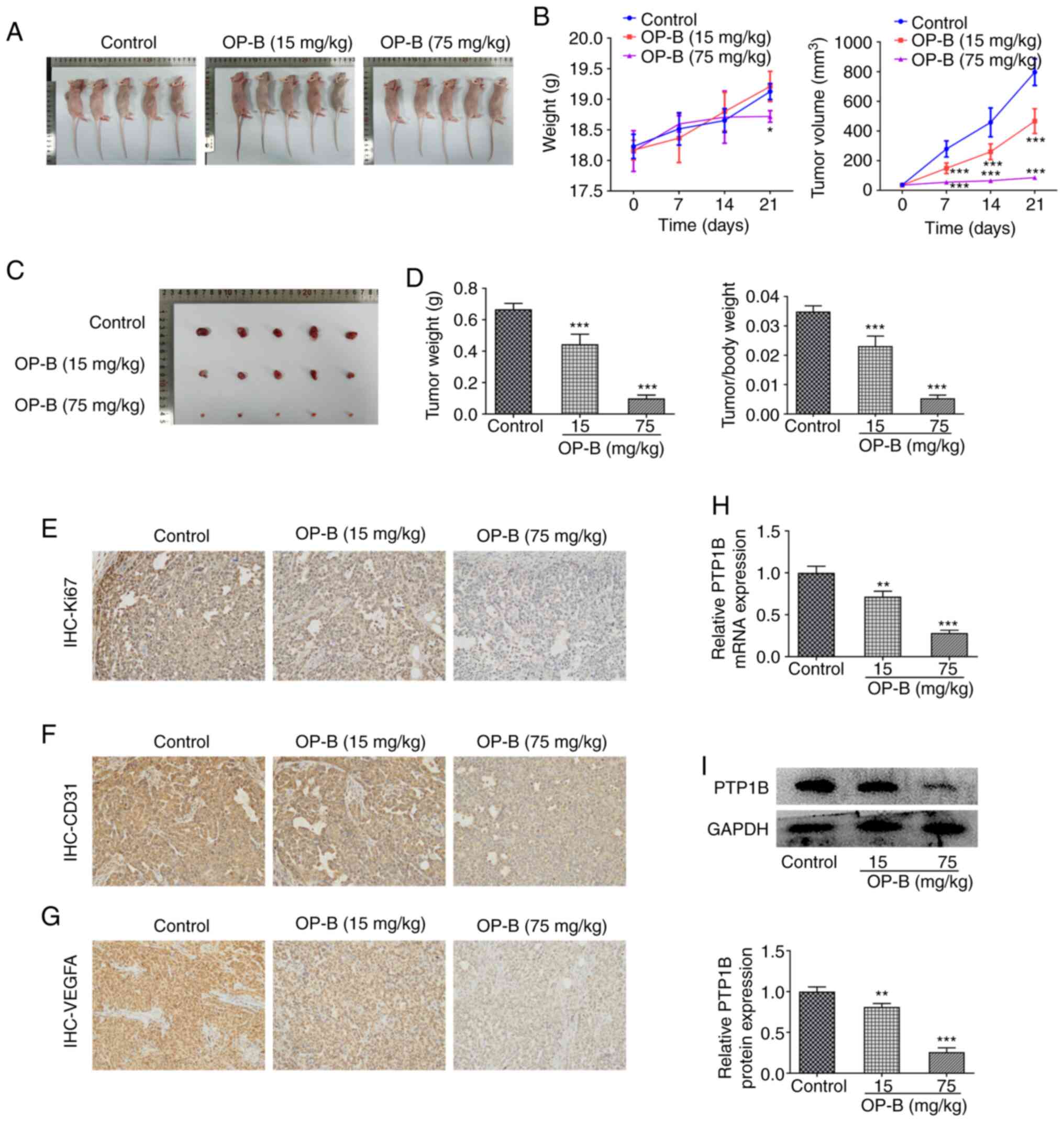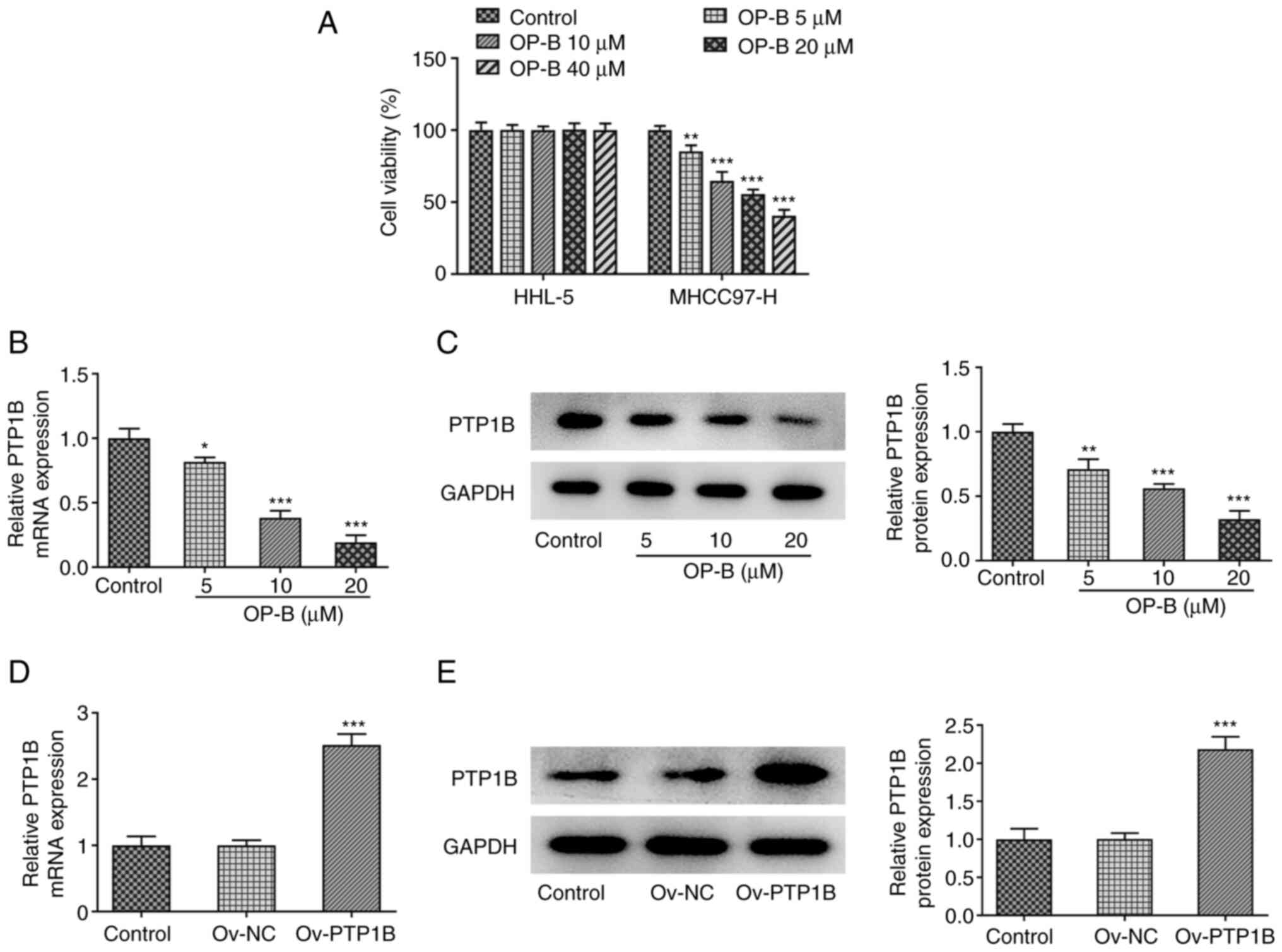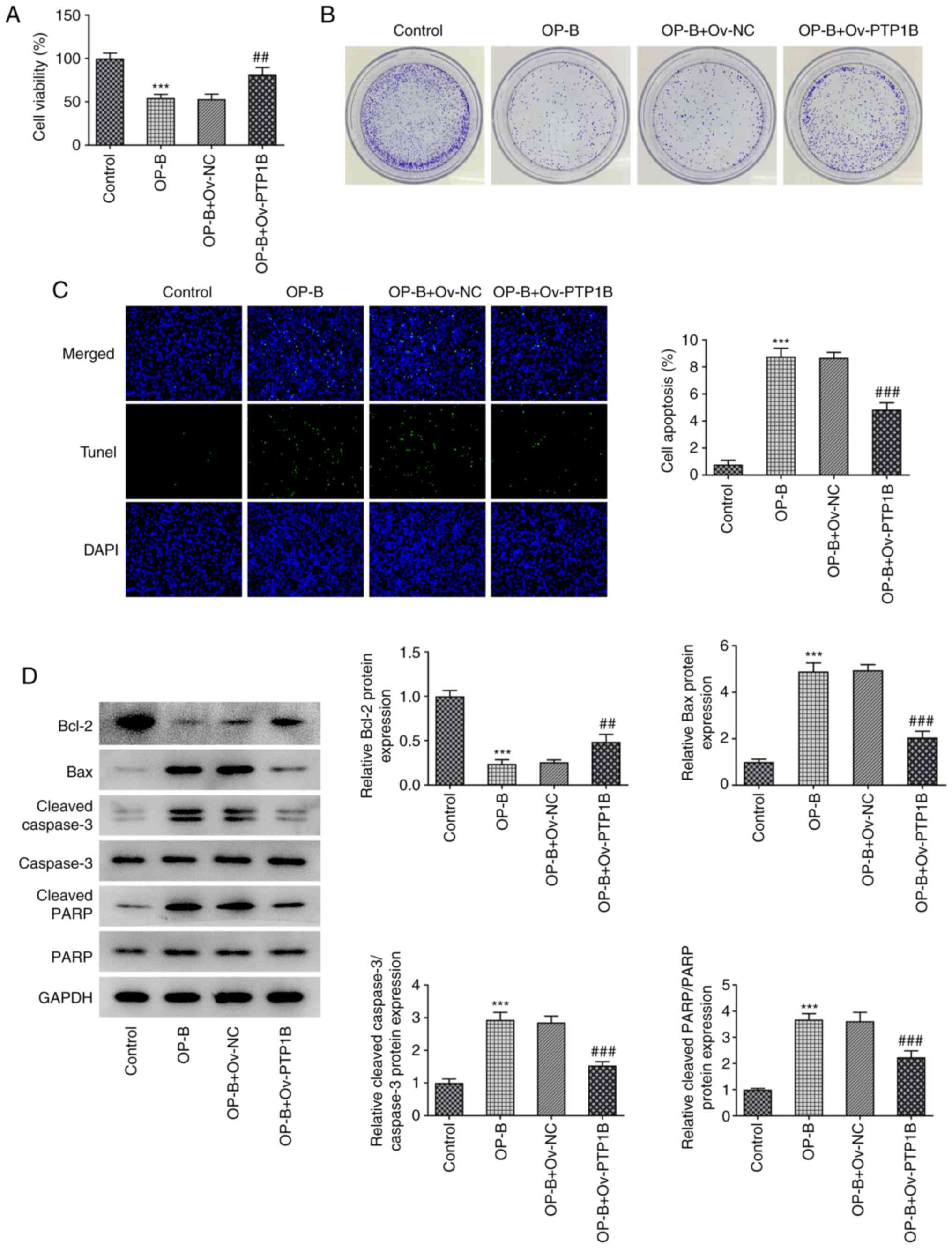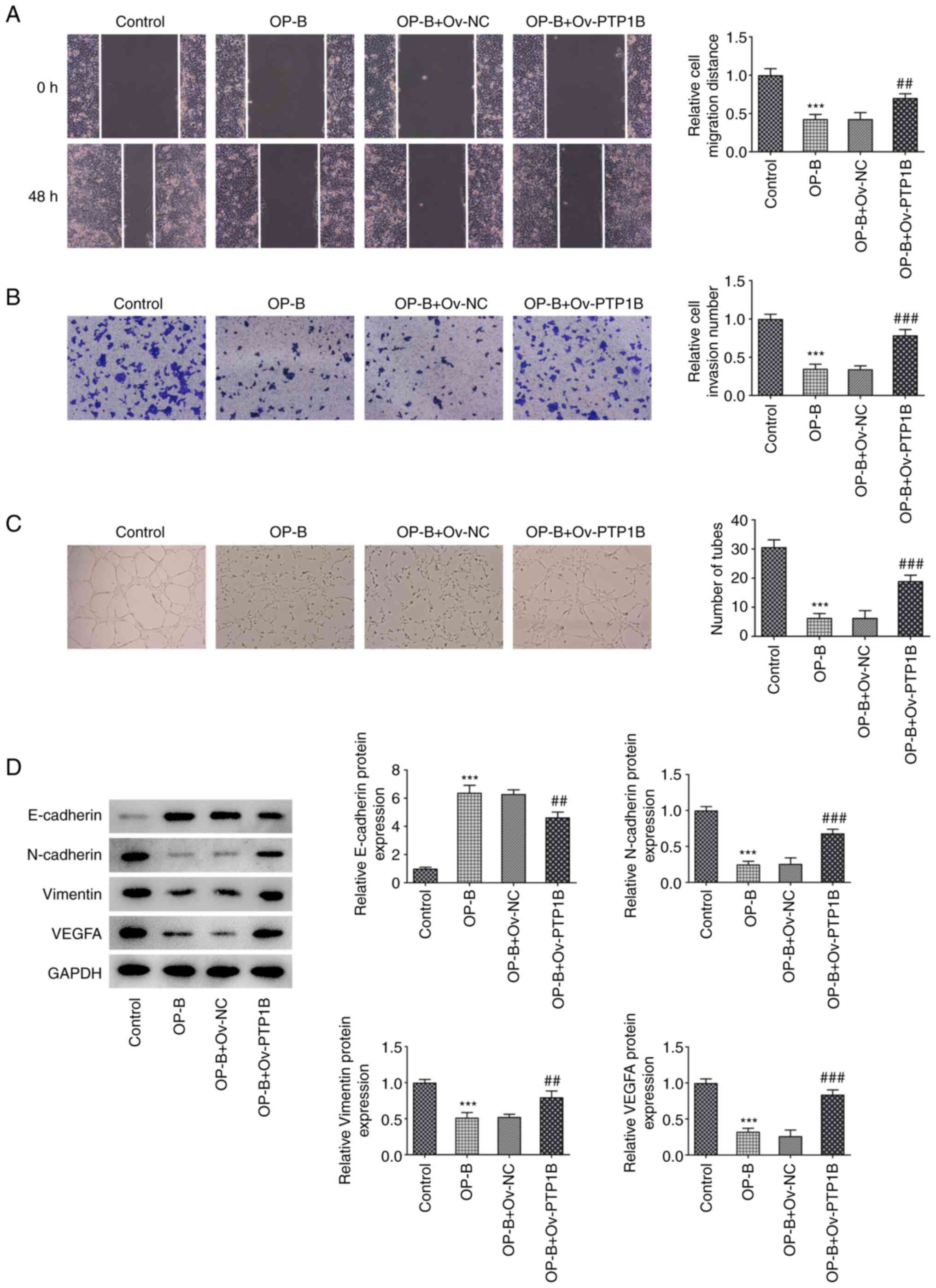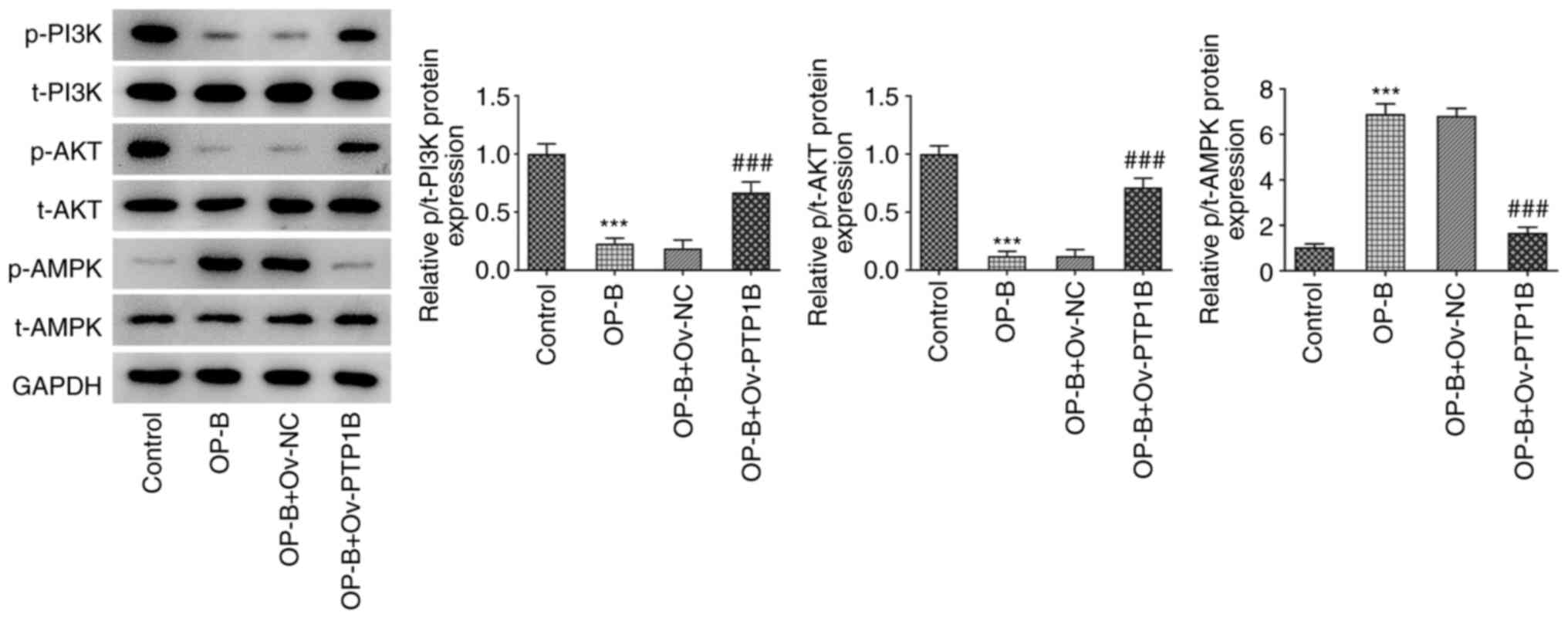|
1
|
Villanueva A: Hepatocellular carcinoma. N
Engl J Med. 380:1450–1462. 2019. View Article : Google Scholar : PubMed/NCBI
|
|
2
|
Grandhi MS, Kim AK, Ronnekleiv-Kelly SM,
Kamel IR, Ghasebeh MA and Pawlik TM: Hepatocellular carcinoma: From
diagnosis to treatment. Surg Oncol. 25:74–85. 2016. View Article : Google Scholar : PubMed/NCBI
|
|
3
|
Hartke J, Johnson M and Ghabril M: The
diagnosis and treatment of hepatocellular carcinoma. Semin Diagn
Pathol. 34:153–159. 2017. View Article : Google Scholar : PubMed/NCBI
|
|
4
|
Sim HW and Knox J: Hepatocellular
carcinoma in the era of immunotherapy. Curr Probl Cancer. 42:40–48.
2018. View Article : Google Scholar : PubMed/NCBI
|
|
5
|
Liao X, Bu Y and Jia Q: Traditional
Chinese medicine as supportive care for the management of liver
cancer: Past, present, and future. Genes Dis. 7:370–379. 2020.
View Article : Google Scholar : PubMed/NCBI
|
|
6
|
Li HM: Microcirculation of liver cancer,
microenvironment of liver regeneration, and the strategy of Chinese
medicine. Chin J Integr Med. 22:163–167. 2016. View Article : Google Scholar : PubMed/NCBI
|
|
7
|
Zhang S, Li H, Li L, Gao Q, Gu L, Hu C,
Chen M and Zhang X: Ophiopogonin B inhibits migration and invasion
in non-small cell lung cancer cells through enhancing the
interaction between Axin and β-catenin. J Cancer. 12:6274–6284.
2021. View Article : Google Scholar : PubMed/NCBI
|
|
8
|
Gao GY, Ma J, Lu P, Jiang X and Chang C:
Ophiopogonin B induces the autophagy and apoptosis of colon cancer
cells by activating JNK/c-Jun signaling pathway. Biomed
Pharmacother. 108:1208–1215. 2018. View Article : Google Scholar : PubMed/NCBI
|
|
9
|
Zhang W, Zhang Q, Jiang Y, Li F and Xin H:
Effects of ophiopogonin B on the proliferation and apoptosis of
SGC-7901 human gastric cancer cells. Mol Med Rep. 13:4981–4986.
2016. View Article : Google Scholar : PubMed/NCBI
|
|
10
|
Yuan S, Xu Y, Yi T and Wang H: The
anti-tumor effect of OP-B on ovarian cancer in vitro and in vivo,
and its mechanism: An investigation using network
pharmacology-based analysis. J Ethnopharmacol. 283:1147062021.
View Article : Google Scholar : PubMed/NCBI
|
|
11
|
Shi J, Zhu L, Tang HL, Zhou YQ, Xue BY and
Chen C: Ophiopogonin Binduceshepatocellular carcinoma MHCC97-H cell
apoptosis and decreases invasion through inhibition of the
JAK2/STAT3 signaling pathway. Int J Clin Exp Med. 11:1825–1834.
2018.PubMed/NCBI
|
|
12
|
Kumar A, Rana D, Rana R and Bhatia R:
Protein tyrosine phosphatase (PTP1B): A promising drug target
against life-threatening ailments. Curr Mol Pharmacol. 13:17–30.
2020. View Article : Google Scholar : PubMed/NCBI
|
|
13
|
Sharma B, Xie L, Yang F, Wang W, Zhou Q,
Xiang M, Zhou S, Lv W, Jia Y, Pokhrel L, et al: Recent advance on
PTP1B inhibitors and their biomedical applications. Eur J Med Chem.
199:1123762020. View Article : Google Scholar : PubMed/NCBI
|
|
14
|
Xu X, Tao Y, Niu Y, Wang Z, Zhang C, Yu Y
and Ma L: miR-125a-5p inhibits tumorigenesis in hepatocellular
carcinoma. Aging. 11:7639–7662. 2019. View Article : Google Scholar : PubMed/NCBI
|
|
15
|
Yang Q, Zhang L, Zhong Y, Lai L and Li X:
miR-206 inhibits cell proliferation, invasion, and migration by
down-regulating PTP1B in hepatocellular carcinoma. Biosci Rep.
39:BSR201818232019. View Article : Google Scholar : PubMed/NCBI
|
|
16
|
Daina A, Michielin O and Zoete V:
SwissTargetPrediction: Updated data and new features for efficient
prediction of protein targets of small molecules. Nucleic Acids
Res. 47:W357–W364. 2019. View Article : Google Scholar : PubMed/NCBI
|
|
17
|
Chen M, Guo Y, Zhao R, Wang X, Jiang M, Fu
H and Zhang X: Ophiopogonin B induces apoptosis, mitotic
catastrophe and autophagy in A549 cells. Int J Oncol. 49:316–324.
2016. View Article : Google Scholar : PubMed/NCBI
|
|
18
|
Chen M, Hu C, Guo Y, Jiang R, Jiang H,
Zhou Y, Fu H, Wu M and Zhang X: Ophiopogonin B suppresses the
metastasis and angiogenesis of A549 cells in vitro and in
vivo by inhibiting the EphA2/Akt signaling pathway. Oncol Rep.
40:1339–1347. 2018.PubMed/NCBI
|
|
19
|
Livak KJ and Schmittgen TD: Analysis of
relative gene expression data using real-time quantitative PCR and
the 2(−Delta Delta C(T)) method. Methods. 25:402–408. 2001.
View Article : Google Scholar : PubMed/NCBI
|
|
20
|
Chen M, Du Y, Qui M, Wang M, Chen K, Huang
Z, Jiang M, Xiong F, Chen J, Zhou J, et al: Ophiopogonin B-induced
autophagy in non-small cell lung cancer cells via inhibition of the
PI3K/Akt signaling pathway. Oncol Rep. 29:430–436. 2013. View Article : Google Scholar : PubMed/NCBI
|
|
21
|
Liu X, Li M, Wang X, Dang Z, Yu L, Wang X,
Jiang Y and Yang Z: Effects of adjuvant traditional Chinese
medicine therapy on long-term survival in patients with
hepatocellular carcinoma. Phytomedicine. 62:1529302019. View Article : Google Scholar : PubMed/NCBI
|
|
22
|
Liu C, Yang S, Wang K, Bao X, Liu Y, Zhou
S, Liu H, Qiu Y, Wang T and Yu H: Alkaloids from traditional
Chinese medicine against hepatocellular carcinoma. Biomed
Pharmacother. 120:1095432019. View Article : Google Scholar : PubMed/NCBI
|
|
23
|
Wang M, Ye Q, Mao D and Li H: Research
progress in liver-regenerating microenvironment and DNA methylation
in hepatocellular carcinoma: The role of traditional Chinese
medicine. Med Sci Monit. 26:e9203102020.PubMed/NCBI
|
|
24
|
Gong Y: Identifying the targets for
treatment of liver fibrosis and hepatocellular carcinoma from both
western medicine and Chinese medicine. Chin J Integr Med.
18:245–249. 2012. View Article : Google Scholar : PubMed/NCBI
|
|
25
|
Yen Y, So S, Rose M, Saif MW, Chu E, Liu
SH, Foo A, Jiang Z, Su T and Cheng YC: Phase I/II study of
PHY906/capecitabine in advanced hepatocellular carcinoma.
Anticancer Res. 29:4083–4092. 2009.PubMed/NCBI
|
|
26
|
Menon SS, Guruvayoorappan C, Sakthivel KM
and Rasmi RR: Ki-67 protein as a tumour proliferation marker. Clin
Chim Acta. 491:39–45. 2019. View Article : Google Scholar : PubMed/NCBI
|
|
27
|
Mendonsa AM, Na TY and Gumbiner BM:
E-cadherin in contact inhibition and cancer. Oncogene.
37:4769–4780. 2018. View Article : Google Scholar : PubMed/NCBI
|
|
28
|
Satelli A and Li S: Vimentin in cancer and
its potential as a molecular target for cancer therapy. Cell Mol
Life Sci. 68:3033–3046. 2011. View Article : Google Scholar : PubMed/NCBI
|
|
29
|
Bartolomé RA, Martín-Regalado Á, Jaén M,
Zannikou M, Zhang P, de Los Ríos V, Balyasnikova IV and Casal JI:
Protein tyrosine phosphatase-1B inhibition disrupts
IL13Rα2-promoted invasion and metastasis in cancer cells. Cancers
(Basel). 12:5002020. View Article : Google Scholar : PubMed/NCBI
|
|
30
|
Tai WT, Chen YL, Chu PY, Chen LJ, Hung MH,
Shiau CW, Huang JW, Tsai MH and Chen KF: Protein tyrosine
phosphatase 1B dephosphorylates PITX1 and regulates p120RasGAP in
hepatocellular carcinoma. Hepatology. 63:1528–1543. 2016.
View Article : Google Scholar : PubMed/NCBI
|
|
31
|
Jin T, Li D, Yang T, Liu F, Kong J and
Zhou Y: PTPN1 promotes the progression of glioma by activating the
MAPK/ERK and PI3K/AKT pathways and is associated with poor patient
survival. Oncol Rep. 42:717–725. 2019.PubMed/NCBI
|
|
32
|
Xu Q, Wu N, Li X, Guo C, Li C, Jiang B,
Wang H and Shi D: Inhibition of PTP1B blocks pancreatic cancer
progression by targeting the PKM2/AMPK/mTOC1 pathway. Cell Death
Dis. 10:8742019. View Article : Google Scholar : PubMed/NCBI
|
|
33
|
Alzahrani AS: PI3K/Akt/mTOR inhibitors in
cancer: At the bench and bedside. Semin Cancer Biol. 59:125–132.
2019. View Article : Google Scholar : PubMed/NCBI
|
|
34
|
Yuan J, Dong X, Yap J and Hu J: The MAPK
and AMPK signalings: Interplay and implication in targeted cancer
therapy. J Hematol Oncol. 13:1132020. View Article : Google Scholar : PubMed/NCBI
|
|
35
|
Zhang B, Wu J, Guo P, Wang Y, Fang Z, Tian
J, Yu Y, Teng W, Luo Y and Li Y: Down-regulation of SREBP via
PI3K/AKT/mTOR pathway inhibits the proliferation and invasion of
non-small-cell lung cancer cells. Onco Targets Ther. 13:8951–8961.
2020. View Article : Google Scholar : PubMed/NCBI
|
|
36
|
Wu J, Zhao X, Sun Q, Jiang Y, Zhang W, Luo
J and Li Y: Synergic effect of PD-1 blockade and endostar on the
PI3K/AKT/mTOR-mediated autophagy and angiogenesis in Lewis lung
carcinoma mouse model. Biomed Pharmacother. 125:1097462020.
View Article : Google Scholar : PubMed/NCBI
|
|
37
|
Zhang Q, Kong J, Dong S, Xu W and Sun W:
Metformin exhibits the anti-proliferation and anti-invasion effects
in hepatocellular carcinoma cells after insufficient radiofrequency
ablation. Cancer Cell Int. 17:482017. View Article : Google Scholar : PubMed/NCBI
|
|
38
|
Li H, Dusseault J and Larose L: Nck1
depletion induces activation of the PI3K/Akt pathway by attenuating
PTP1B protein expression. Cell Commun Signal. 12:712014. View Article : Google Scholar : PubMed/NCBI
|
|
39
|
Sun T, Wang Q, Yu Z, Zhang Y, Guo Y, Chen
K, Shen X and Jiang H: Hyrtiosal, a PTP1B inhibitor from the marine
sponge Hyrtios erectus, shows extensive cellular effects on
PI3K/AKT activation, glucose transport, and TGFbeta/Smad2
signaling. Chembiochem. 8:187–193. 2007. View Article : Google Scholar : PubMed/NCBI
|
|
40
|
Chen J, Gingold JA and Su X:
Immunomodulatory TGF-β signaling in hepatocellular carcinoma.
Trends Mol Med. 25:1010–1023. 2019. View Article : Google Scholar : PubMed/NCBI
|
|
41
|
Ferrín G, Guerrero M, Amado V,
Rodríguez-Perálvarez M and De la Mata M: Activation of mTOR
signaling pathway in hepatocellular carcinoma. Int J Mol Sci.
21:12662020. View Article : Google Scholar : PubMed/NCBI
|
|
42
|
Vilchez V, Turcios L, Marti F and Gedaly
R: Targeting Wnt/β-catenin pathway in hepatocellular carcinoma
treatment. World J Gastroenterol. 22:823–832. 2016. View Article : Google Scholar : PubMed/NCBI
|















